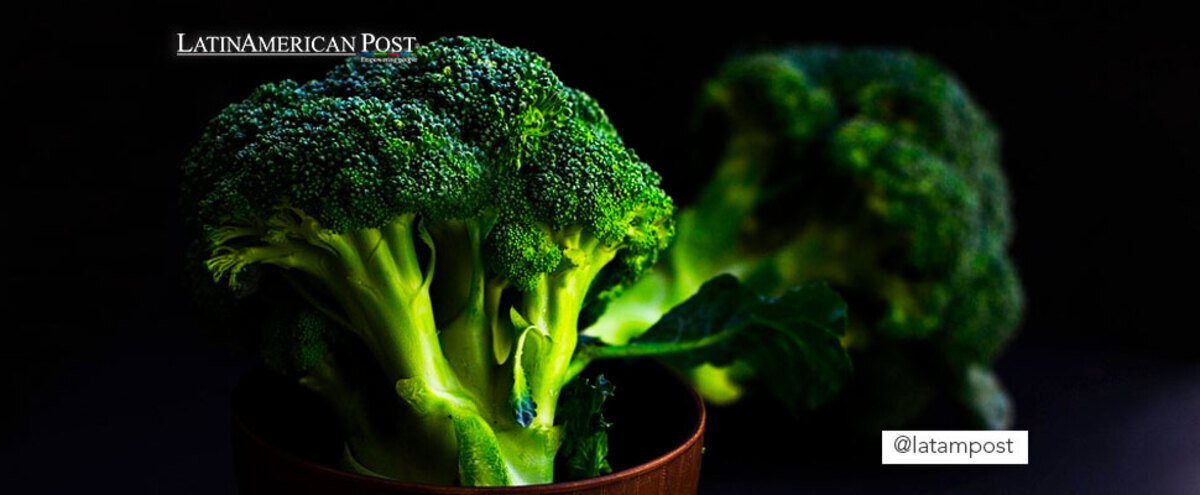10 Non-Dairy Calcium-Rich Foods for Strong Bones
Taking Care of our Bone Health is Essential to have a Good Quality of Life. Here we Tell you what Foods Rich in Calcium you Should Include in your Diet.

Photo: Pixabay
LatinAmerican Post | Erika Benitez
Listen to this article
Leer en español: 10 alimentos ricos en calcio que no son lácteos para unos huesos fuertes
Calcium is the most abundant mineral in our body, since it is a fundamental part of the skeleton and teeth. We need it to maintain healthy and strong bones. It is also necessary for the development of important functions such as blood coagulation, muscle relaxation, sending and receiving signals in the nervous system, and maintaining a good heart rhythm. Given its importance to public health, several studies have been conducted to determine the best sources of this nutrient.
When we talk about calcium, we commonly associate it with milk and its derivatives (yogurt, cheese), but there are other foods that can even provide a higher level of calcium than dairy products. For example, sesame seeds are a great source of calcium, you can add them to a salad, bread, granola or use sesame cream, called tahini.
According to “MedlinePlus”, an information service of the US National Library of Medicine (NLM), “other sources of calcium that can help meet the body's needs include”:
- Green leafy vegetables such as broccoli, kale, spinach, collard greens, mustard greens, turnip greens, and bok choy or Chinese cabbage.
- Salmon and sardines canned with their soft bones.
- Almonds, Brazil nuts, sunflower seeds, tahini (tahina), and dried legumes.
Likewise, it mentions that “calcium is often added to food products. These include foods such as breads, orange juice, soy milk, tofu, and ready-to-eat cereals.” An excellent calcium alternative, for those who do not consume dairy products.
10 foods rich in calcium that you can add to your diet
1. Broccoli
Although it is not usually the favorite, broccoli is one of the most complete vegetables you can consume, with a great contribution of calcium. For every 200 grams of broccoli, you will get 200 mg of calcium.
2. Spinach
Among the green leafy foods we find spinach, which in addition to calcium contains other healthy nutrients. You can consume them in different ways, whether they are cooked, in salads and even include them in your smoothies.
3. Sardines
They are a great food, in addition to calcium, they contain phosphorus, sodium, vitamin D and magnesium, important minerals in the preservation of bones and muscle mass.
4. Orange
They are commonly known for their contributions of vitamin C. However, it is also a food rich in calcium. One unit can provide up to 65 milligrams.
5. Almonds
In the group of nuts that can provide calcium, we highlight almonds, which in addition to being delicious, are a source of energy, healthy fats, vitamin E and protein. Its consumption, in its natural state, can provide more calcium than milk itself.
6. Sesame
Sesame seeds, also known as sesame seeds, despite their size, provide 88 milligrams of calcium in the equivalent of one tablespoon. It is an ideal seed to accompany salads and some fish.
7. White beans
These grains are a relevant source of iron, but they also provide a good amount of calcium. A cup of white beans corresponds to 20% of the daily calcium intake in a balanced diet.
8. Chickpeas
They are one of the legumes with the highest calcium content. They also contain B vitamins, folic acid, vitamin E and other minerals such as iron, magnesium, potassium and phosphorus.
9. Eggs
Par excellence, it is a source of protein, but in eggs you will also find calcium. For every 100 grams of egg there are more than 60 milligrams of calcium. Its greatest contribution is found in the yolk.
10. Tofu
For people who do not eat meat, it is a good option in vegetarian diets due to its high content of calcium and protein. In addition, it stands out for its ability to reduce blood cholesterol and is a common ingredient in oriental food.
You may also be interested in: Winter and Rainy Season: 10 Foods Rich in Vitamin C to Protect your Health
How much calcium should I consume?
The need for calcium is different according to age, sex or life situations (childhood, pregnancy, menopause, etc.). According to “ The National Institutes of Health” (NIH) , the United States medical research agency, the recommended daily amount, for example, for babies up to 6 months is 200 mg. For children between 4 and 13 years old it is between 1000 mg and 1300 mg. For adults (men) between 51 and 70 years old: 1000 mg, while for women in the same age range the amount is 1200 mg.
On the other hand, an article published in September of this year in the “ eLife Magazine ” on the effects of calcium supplementation in people under 35 years of age, "showed that calcium supplementation significantly improves bone mass". This preventive action, "can be a change in the window of intervention for osteoporosis", concludes the study. However, it is essential to consult with your GP.
What happens if I don't get enough calcium?
As noted by the NIH, insufficient calcium intake can affect health in a number of ways, including osteoporosis, which causes brittle bones and increases the risk of falls. Likewise, rickets that affects children and produces a softening and weakness of the bones or osteomalacia that causes the softening of the bones, both in children and adults.
Since calcium is not produced naturally by the body, its presence depends exclusively on including it in the diet. Likewise, for this to be assimilated correctly, it is necessary to supplement its intake with sources of vitamin D that help the body absorb calcium. We can find it in foods such as eggs or fatty fish, but also through moderate exposure to the sun or supplements.




